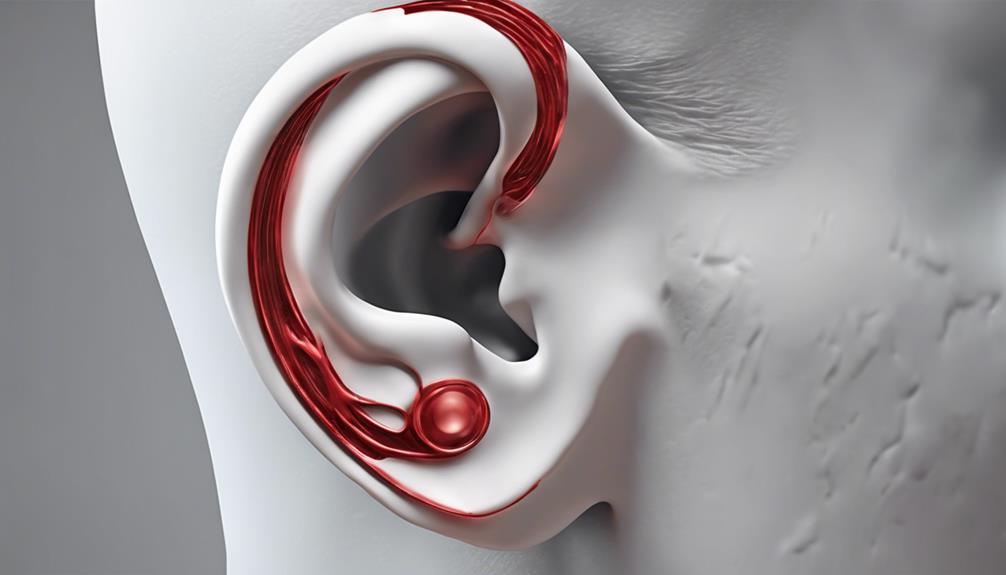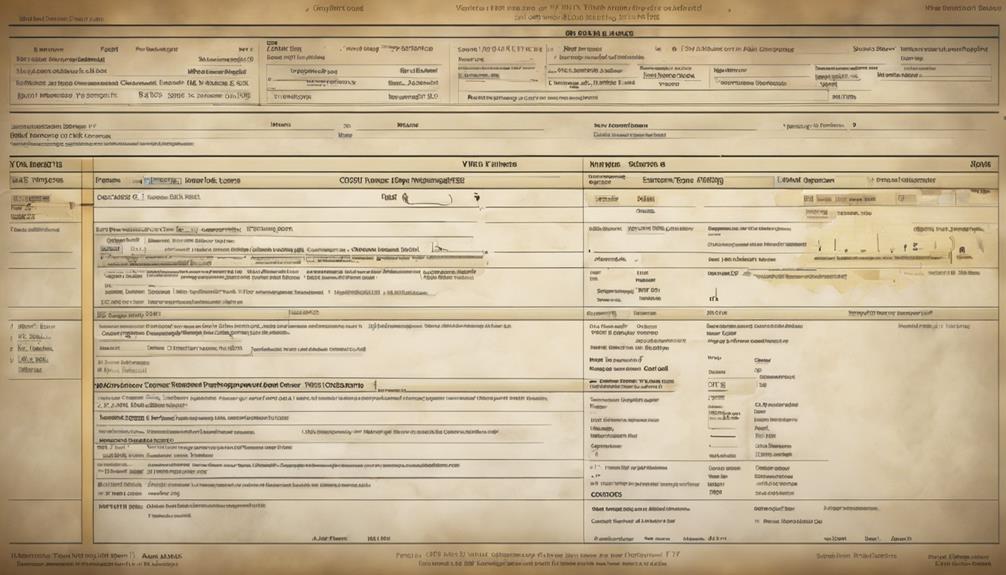Navigating a Disability Benefits Questionnaire for Hearing Loss and Tinnitus is like solving a intricate puzzle. It is important to pay close attention to every detail to ensure eligibility for potential benefits.
As we unravel the steps and intricacies of how to tackle this questionnaire, we'll shed light on the essential elements that could make or break your claim. Let's embark on this journey together, unraveling the mysteries and maximizing your chances of success.
Key Takeaways
- Detailed documentation and symptom descriptions are crucial for accurate assessment.
- Functional limitations impact daily life and must be clearly described.
- Seeking professional assistance from audiologists and specialists enhances DBQ completion.
- Proper completion of the DBQ influences the VA disability rating decision significantly.
Understanding the Questionnaire Requirements
Understanding the questionnaire requirements is crucial for accurately documenting Hearing Loss and Tinnitus in Disability Benefits Questionnaires (DBQs). When completing the Hearing Loss and Tinnitus DBQs, providers must pay close attention to the specific audiometric testing results required for each section. The DBQ criteria for evaluating Hearing Loss include puretone threshold testing and speech discrimination data, which are vital for assessing the severity of the condition. Additionally, understanding the impact of Hearing Loss and Tinnitus on daily life is essential for providing detailed information in the DBQ.
Properly completing the DBQ is crucial as it can significantly influence the VA disability rating decision. Providers must ensure that all documentation requirements are met to accurately reflect the impact of Hearing Loss and Tinnitus on the individual's quality of life. By following the guidelines and including comprehensive information in the DBQ, we can help ensure that deserving individuals receive the appropriate support and benefits they need.
Gathering Relevant Medical Documentation

To effectively support a hearing loss or tinnitus disability claim, it's crucial to gather comprehensive medical documentation, including audiograms, relevant test results, and records of treatments or exposures that relate to the hearing impairment.
- Medical Records: Collect all medical records related to your hearing loss condition.
- Audiograms: Ensure you have up-to-date audiograms to present the current status of your hearing.
- Occupational Noise Exposure History: Provide documentation of any past exposure to loud noises in your work environment or during military service that could have contributed to your hearing loss.
Providing Detailed Symptom Descriptions
When describing symptoms of tinnitus, it is essential to articulate the specific sounds experienced, such as ringing, buzzing, roaring, clicking, or hissing in the ears. Providing detailed information on the frequency, duration, and intensity of these sounds can help convey the impact on daily life. It is also important to mention any triggers that worsen tinnitus, like loud noises, stress, or certain medications. Additionally, including details about associated symptoms such as dizziness, headaches, or ear pain can provide a more comprehensive understanding of the condition.
| Category | Description |
|---|---|
| Frequency | How often the tinnitus sounds occur |
| Duration | Length of time each episode lasts |
| Intensity | The loudness or severity of the sounds |
Describing how tinnitus affects concentration, sleep quality, and overall quality of life can shed light on the functional limitations caused by this condition. By painting a clear picture of these symptom descriptions, individuals reviewing the questionnaire can better understand the challenges faced by those experiencing tinnitus.
Describing Functional Limitations

Our experiences with hearing loss and tinnitus often bring about functional limitations that impact various aspects of our daily lives. These limitations aren't just physical but can affect us emotionally and socially as well.
Here are some key points to consider:
- Difficulty with speech understanding in noisy environments can lead to frustration and withdrawal from social situations.
- Challenges with localization of sounds may result in feelings of disorientation and a sense of insecurity.
- Concentration difficulties caused by tinnitus can affect our ability to focus on tasks at work or home, impacting productivity and overall well-being.
These functional limitations can contribute to social isolation, communication barriers, decreased work performance, and difficulties in performing daily activities. By recognizing and describing these limitations in detail, we can better convey the true impact of hearing loss and tinnitus on our lives, helping healthcare providers and disability benefits assessors better understand our needs and provide appropriate support.
Seeking Professional Assistance if Needed
Considering the complexity of hearing loss and tinnitus, seeking professional assistance from qualified healthcare providers is crucial for accurate evaluation and support.
When completing a Hearing Loss Disability Benefits Questionnaire (DBQ), it's advisable to consult with a state-licensed audiologist.
For issues related to tinnitus, seeking evaluation from an ear, nose, and throat (ENT) specialist can provide valuable medical expertise.
In cases where mental health aspects are involved, collaborating with a qualified mental health provider for a mental health DBQ completion is recommended.
It's essential to ensure that the healthcare provider completing the DBQ has the necessary qualifications and expertise in the relevant field to provide accurate information for VA submission.
If any sections of the DBQ are unclear or confusing, seeking clarification from the provider is vital to ensure that all details are accurately documented for a comprehensive evaluation.
Frequently Asked Questions
How Do I Prove Tinnitus for Disability?
We prove tinnitus for disability by establishing a direct link to military service through exposure to loud noises. A current diagnosis from a healthcare provider is crucial.
Document the in-service event like gunfire or explosions that likely caused tinnitus. Obtain a medical nexus linking tinnitus to the event.
Supporting evidence such as medical records and buddy letters strengthen the claim for VA benefits. It's essential to build a solid case for disability benefits based on these factors.
How Do You Complete a Dbq?
Completing a DBQ involves providing detailed information about a condition's impact on daily life. It should be done by a qualified healthcare provider who can assess the severity accurately.
Testing results like puretone thresholds and speech discrimination percentages must be documented. Understanding how the VA rates the condition is crucial for accurate documentation.
Submitting the completed DBQ to the VA regional office as per guidelines supports a disability claim.
Can I Fill Out My Own Dbq Va?
Yes, we can definitely fill out our own VA DBQ for hearing loss and tinnitus. The VA allows veterans to complete their own DBQs to document their conditions accurately.
What Not to Say at C&P Exam?
When attending a C&P exam, we must be mindful of what we say. It's crucial not to downplay the impact of our hearing loss or tinnitus.
It's also important not to exaggerate symptoms or provide false information. Inconsistent statements about the onset or severity of our conditions should be avoided.
We should focus on discussing relevant information about our military service and exposure to loud noises that may have contributed to our hearing issues.
Conclusion
In conclusion, completing a Hearing Loss and Tinnitus Disability Benefits Questionnaire requires attention to detail and thorough documentation. It's crucial to provide accurate information to ensure eligibility for benefits.
As the saying goes, 'The devil is in the details,' so taking the time to gather all necessary information and seek professional assistance if needed can make a significant difference in the outcome of your disability claim.
Remember, every detail matters when it comes to securing the benefits you deserve.











